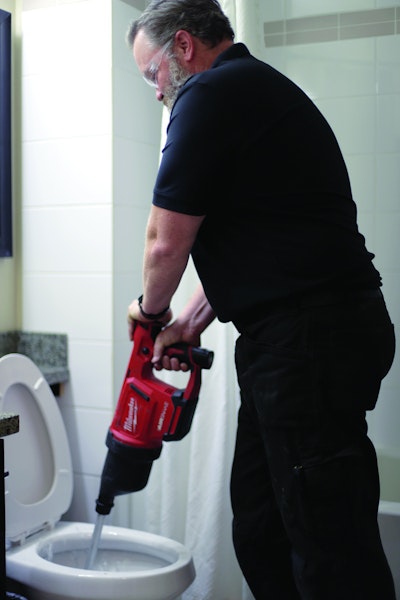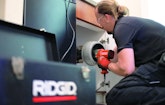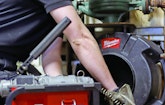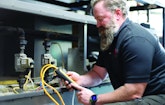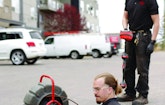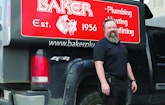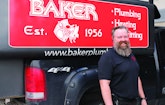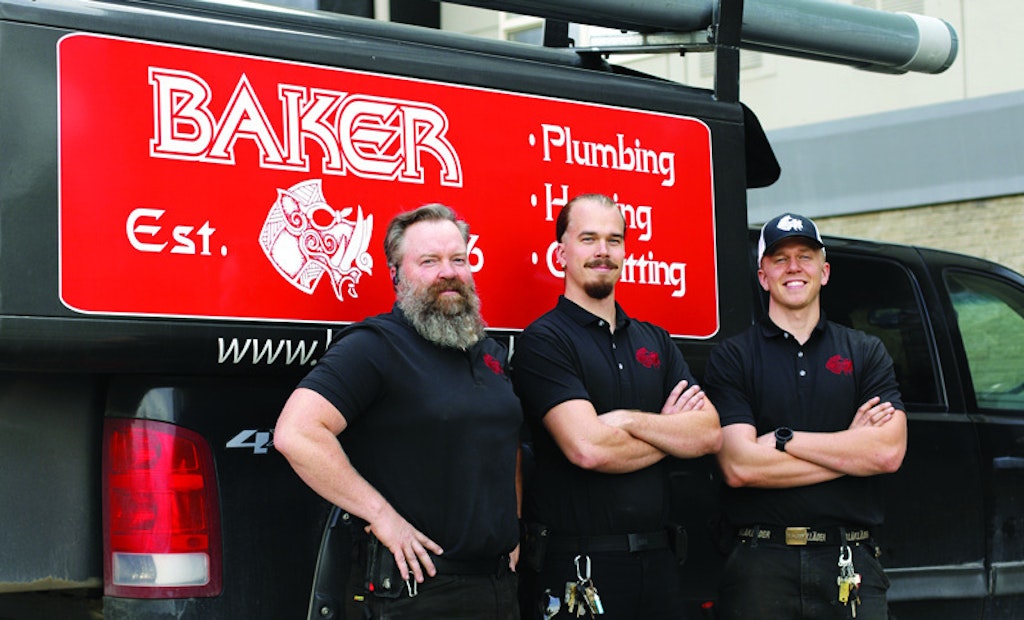
The team at Baker Plumbing includes (from left) Bob Baker, owner and master plumber, and his two sons, Isaiah Baker, journeyman plumber, and Pete Baker, an apprentice.
When Bob Baker assumed ownership of Baker Plumbing, his family’s well-established business in Calgary, Alberta, he kick-started an aggressive growth strategy, guided by the concept that getting bigger was better than staying small.
“My father was always very conservative,”...
